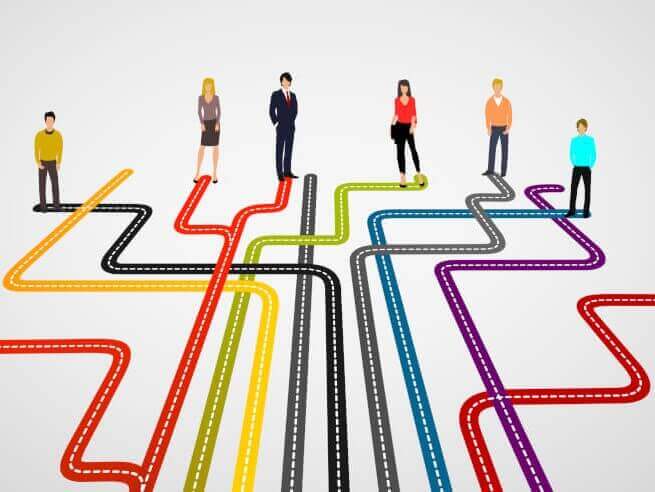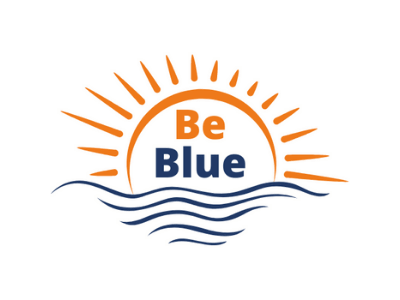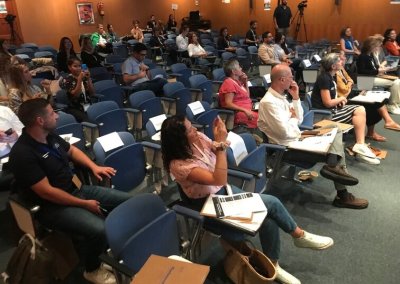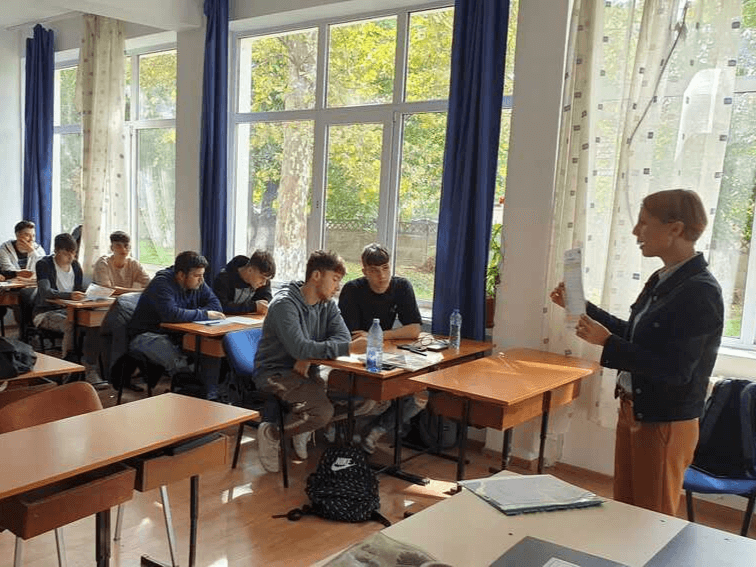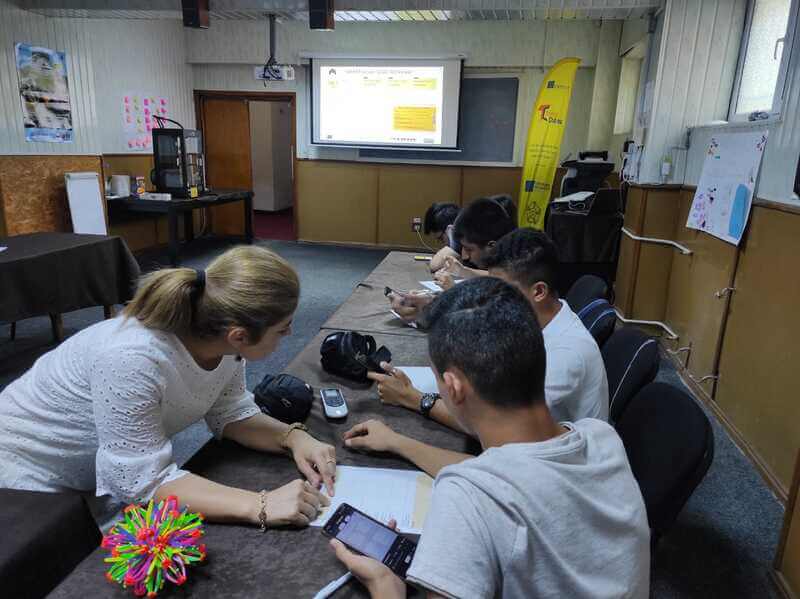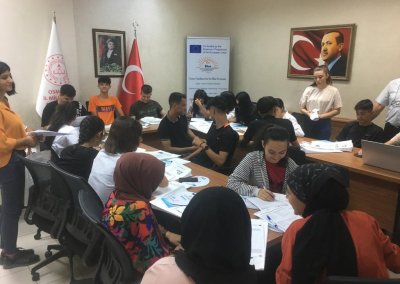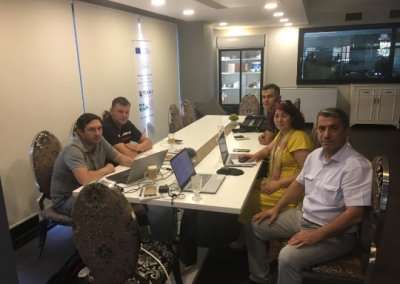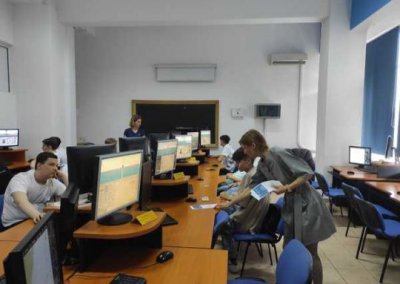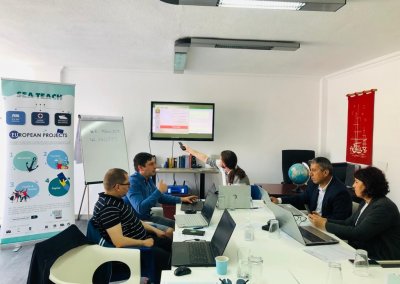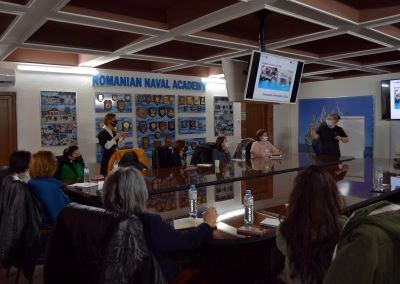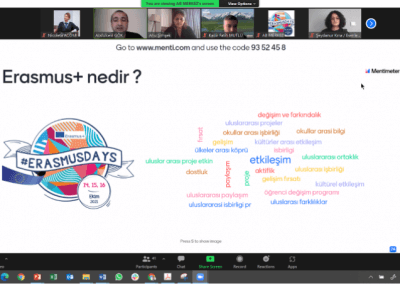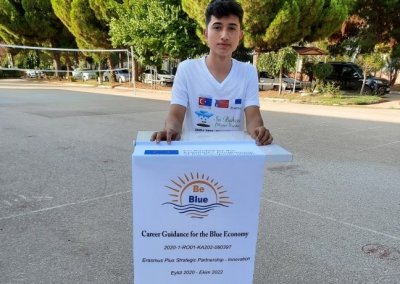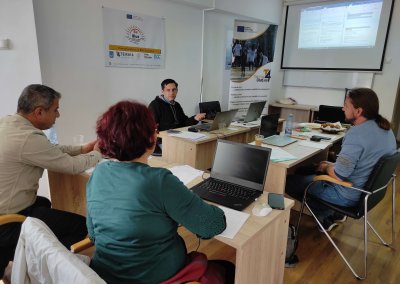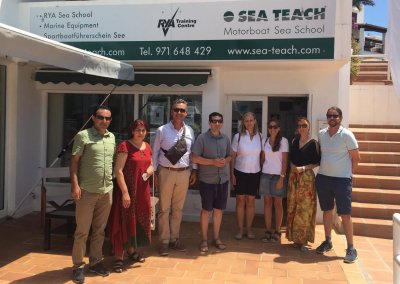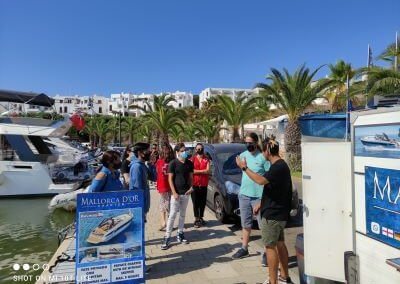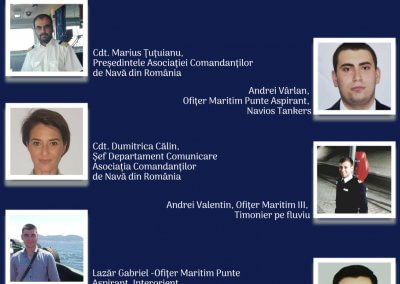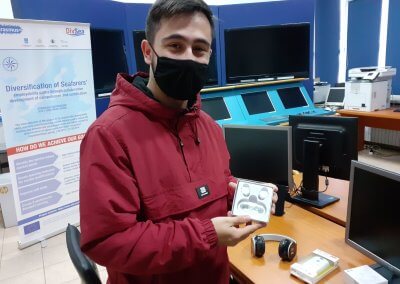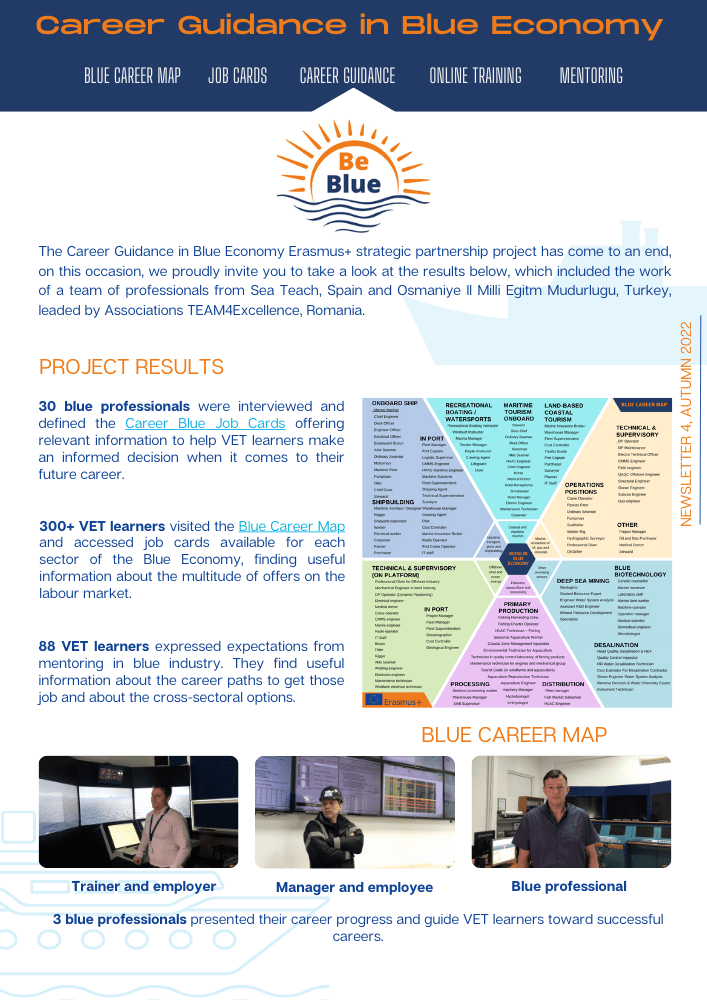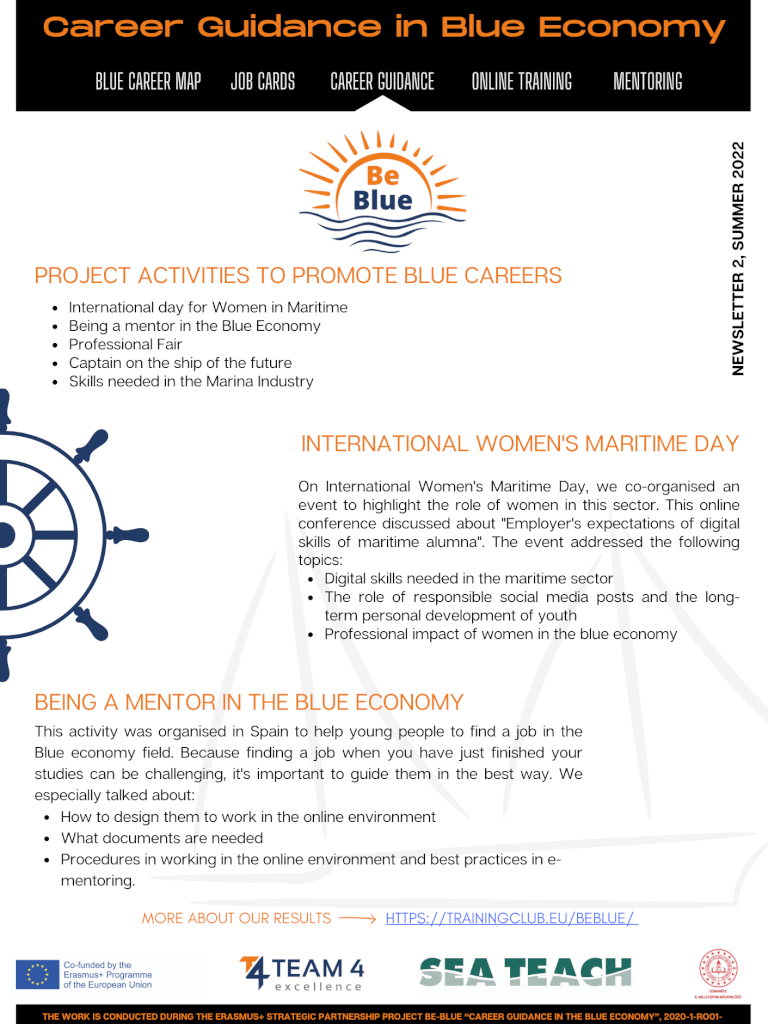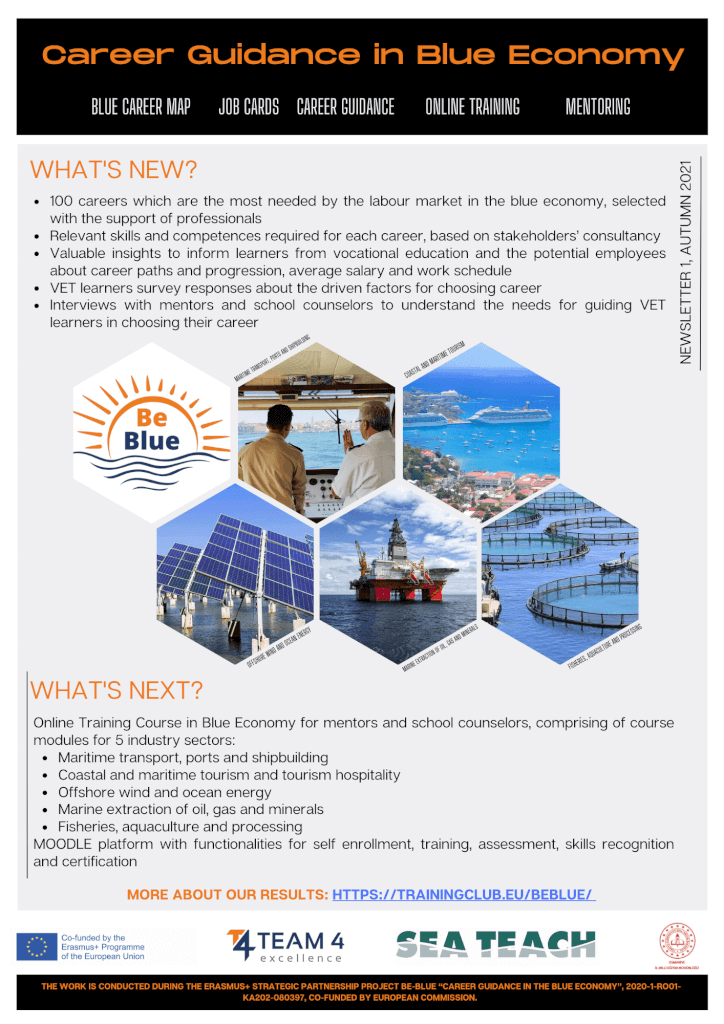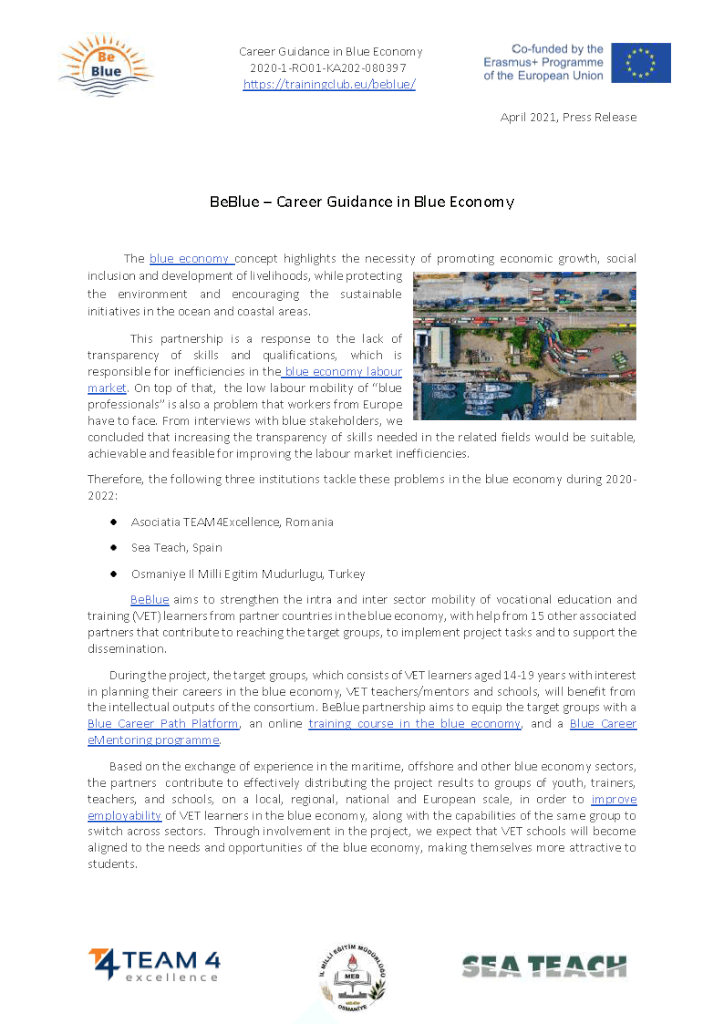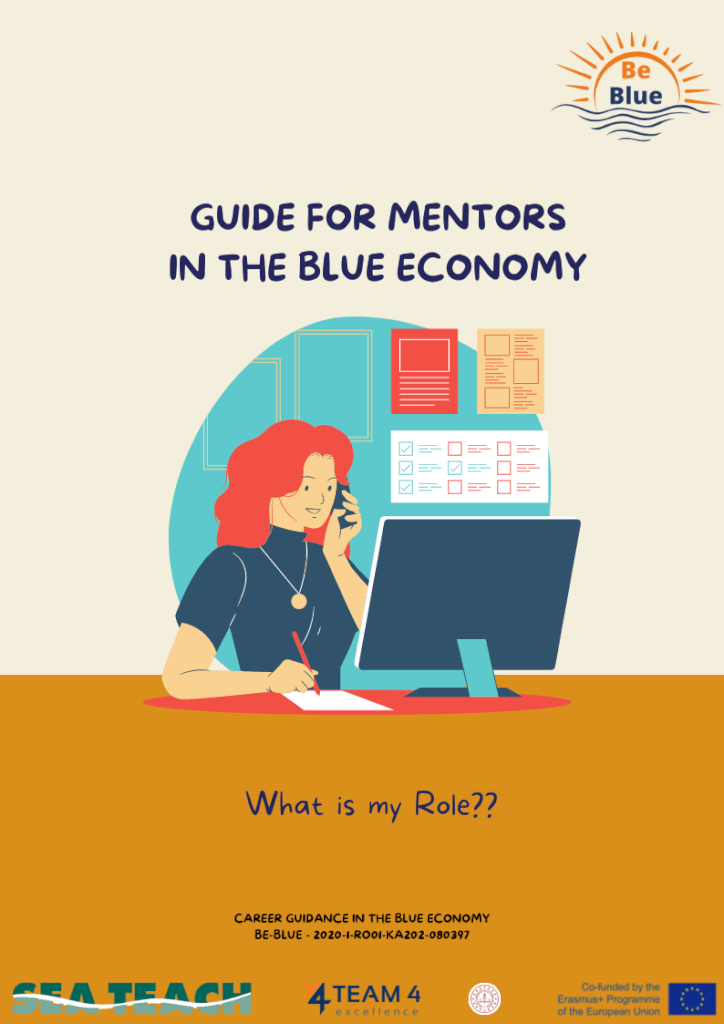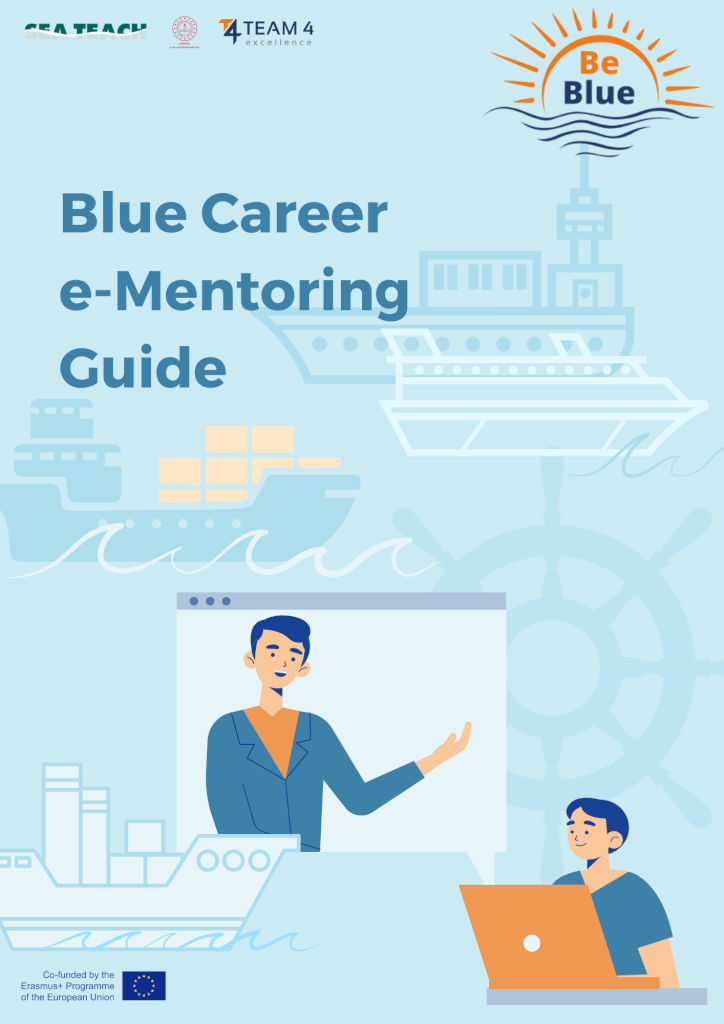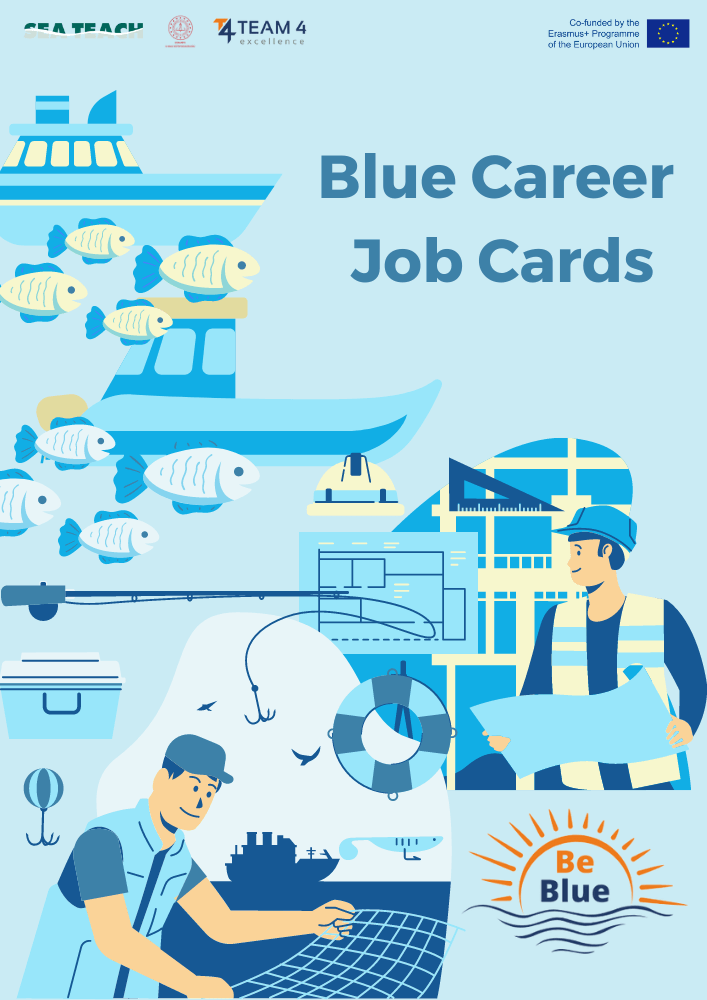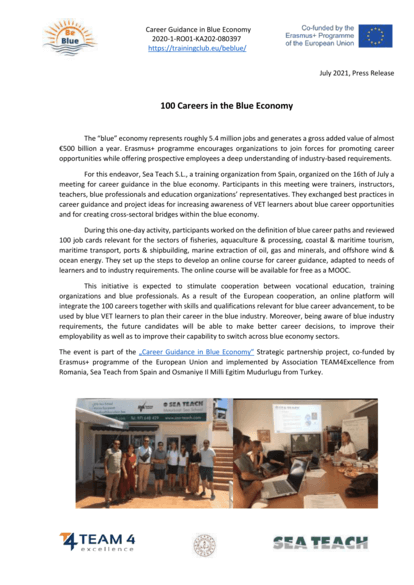CAREER GUIDANCE IN BLUE ECONOMY
The blue economy includes all economic activities related to oceans, seas and coasts. It covers a wide range of interlinked established sectors (e.g. shipping, offshore oil&gas, coastal tourism) and emerging sectors (e.g. offshore renewables, biotechnology). The blue economy is a priority of EU because it represents 3.5 million of jobs with 174 billion Euro gross value added.
As for all industries, the blue economy sectors operate in cycles, with periods of highs and lows. During periods of low, people can hardly find a job. However, the sector cycles do not overlap, meaning that when the shipping is low, the offshore oil&gas may be high; as a result, there may be more job offers in oil&gas compared to shipping. These are the facts, but you probably ask yourself “So what”? Read below…
Cross-sectoral mobility
So, what’s in for you?
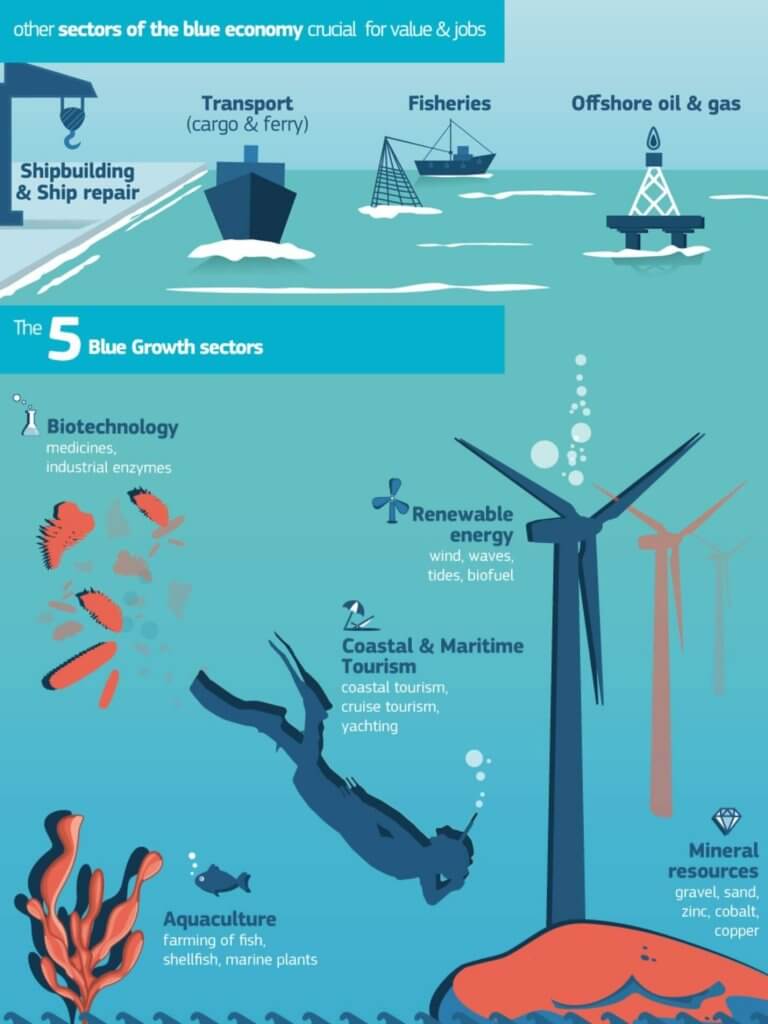
If you work or intend to work in the blue economy, most probably you are looking for a job when you cannot find one, or for a better job when you already have one. For example, you may be one of the 250,000 European seafarers and want to move into offshore oil&gas or in a shore-based job (cross-sectoral mobility). How can you do that? First of all, you need to know what are your options in terms of blue economy sectors, jobs, job descriptions, skills needed, employers and how to get to them. For that, you need a place to start and some people to guide you.
BeBlue is the place and we (together with you) are those people. Keep on reading…
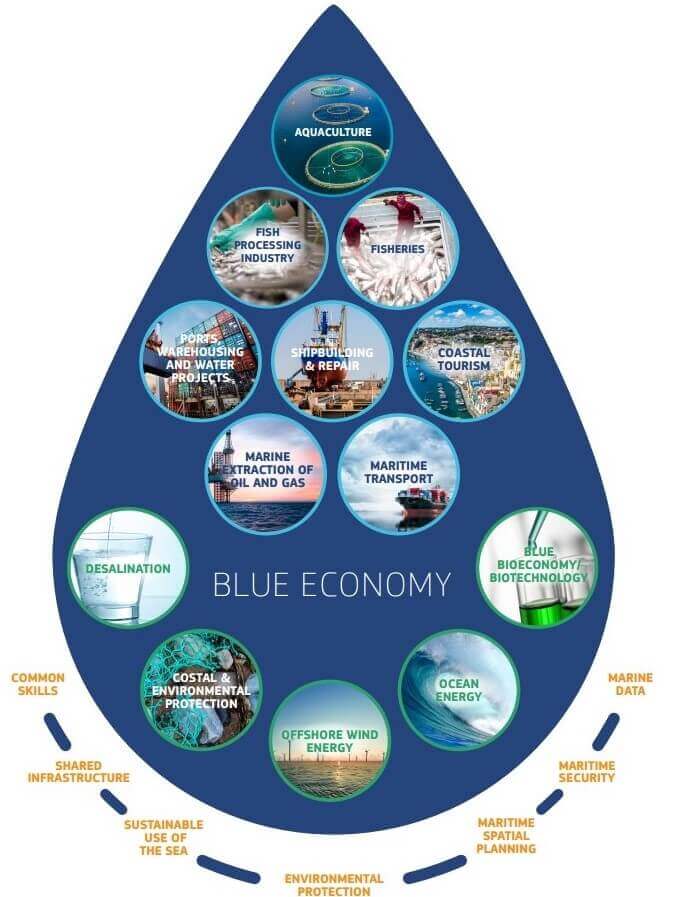
CAREER MAP
Many of us work or want to work in the Blue Economy. What career options do you have along the way? How can climb up the ranks or switch across the 5 blue economy sectors? You need a roadmap for career paths and descriptions of various jobs to be able to plan your moves. In the BeBlue project, we provide you a career map with 100+ job descriptions, requirements, benefits and real-life examples. Explore these with us!
ONLINE TRAINING
The blue economy spans from maritime transport, offshore renewable or oil&gas, fisheries and coastal tourism. These sectors are inter-related and jobs are available for you to move across. BeBlue gives you the chance to take a closer look at all these. For example, if you are a deck officer on a bulk carrier, you could go on cruise vessels, or offshore wind farm support vessels, oil&gas drill ships, ports, shipbuilding, etc. Learn more!
E-MENTORING
Have you ever needed to ask someone, a real person, about how is it to do a particular job? Or did someone ask you how is the job you already have? Mentoring is just about that: a relationship established around the idea of sharing (professional) experiences. Are you a mentor or a mentee? You can be both at the same time. Give and take valuable experiences through the BeBlue E-Mentoring programme. Join us!
Sectors in the blue economy
Fisheries, aquaculture and processing
Global seafood consumption has more than doubled in the past 50 years and has outpaced population growth (3.2 % v 1.6 %). The EU is the largest seafood market in the world. On average, the per capita consumption in the EU reached over 24 kg of seafood in 2016, of which the vast majority comes from wild catches while farmed seafood accounts for about one quarter of consumption.
Fishing is one of the oldest blue economy sectors, together with shipping. Nowadays, commercial fisheries include wild fisheries and fish farms. EU marine fisheries production reached almost 5.3 million tonnes in 2017, with a total value reported at €7.3 billion.
Aquaculture refers to the farming of fish, shellfish, algae and other aquatic organisms and takes place both in inland and marine waters. According to 2016 figures, about 75 000 people from around 12 500 businesses are directly employed in aquaculture in the EU.
The processing sector includes the preparation and preservation (freezing, drying, cooking, smoking, salting, canning, etc.) and the production (fish fillets, caviar, etc.) of fish, crustacean and mollusc products. The sector employs about 126 000 workers from around 3 800 businesses in the EU.
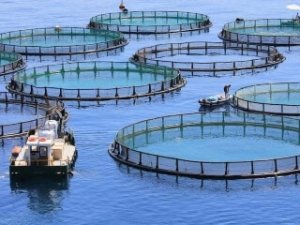
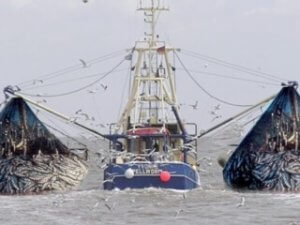
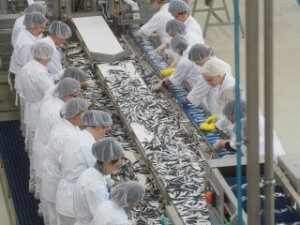
Coastal and maritime tourism
The coastal and maritime tourism sector has been identified as an area with special potential to foster a smart, sustainable and inclusive Europe. Employing more than 2.2 million people, the sector is by far the biggest employer in the blue economy (accounting for 54 % of jobs in the established blue economy sectors).
Tourism that is largely water-based rather than land-based (e.g. boating, yachting, cruising, nautical sports), but includes the operation of landside facilities, manufacturing of equipment, and services necessary for this segment of tourism. On the other hand, coastal tourism covers: ‘beach-based recreation and tourism (e.g. swimming, surfing, sun bathing), and non-beach related land-based tourism in the coastal area (all other tourism and recreational activities that take place in the coastal area for which the proximity of the sea is a condition), as well as the supplies and manufacturing industries associated to these activities.
Coastal and maritime tourism plays a significant role in the economic development of coastal regions. According to Eurostat, in 2017, coastal areas accounted for 45.7 % of the total nights spent in EU-28 tourist accommodation.
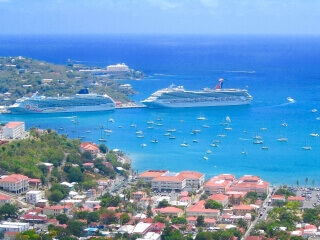
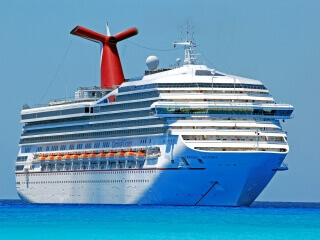
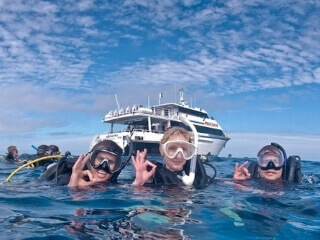
Maritime transport, ports and shipbuilding
Most blue economy activities need ships and rely on ports and the shipping industry. The two main sectors of this industry, shipbuilding and maritime shipping, are interlinked and depend strongly on international markets.
In Europe, the sector has specialised in building high-value market vessels (mostly cruise ships) and technologically sophisticated ships. Smaller shipyards tend to specialise in fishing vessels or mega-yachts. The sector also produces marine equipment, marine machinery and navigation instruments, and provides products and services for ship maintenance, repair and conversion. Over 300 shipyards in EU account for about 6 % of the global market share in terms of tonnage and 19 % in terms of value on global order books, and up to 50 % for marine equipment. The sector employs about 315 000 people (8 % of jobs in the established blue economy).
The blue economy focuses on coastal, short sea and deep-sea shipping of both passengers and freight. Short sea shipping represents a third of intra-EU exchanges in tonne-kilometres and is crucial for quality of life on EU islands and in peripheral maritime regions. It employs about 232 000 people (6 % of jobs in the established blue economy). The sector also includes inland water transport and the rental and lease of water transport equipment.
The EU has about 1 200 maritime ports, handling about 4 billion tonnes of freight and serving 415 million ferry and cruise passengers every year. Port activities include cargo handling, warehousing and storage, construction of water projects and services relating to water transportation. Directly or indirectly, EU seaports support about 2.5 million jobs, of which the blue economy employs more than half a million people (14 % of jobs in the established blue economy).
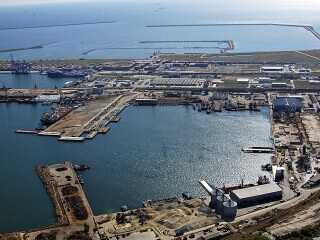
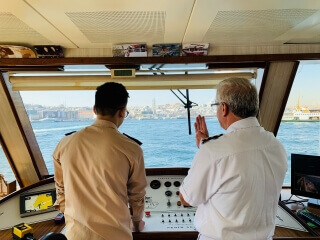
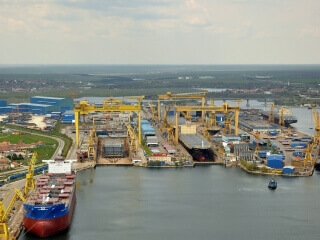
Marine extraction of oil, gas and minerals
The marine extraction of minerals, oil and gas is one of the most established economic sectors of the blue economy.
It represents around 13 % (€22.8 billion) of the gross value added (GVA) of the established blue economy, although it accounts for only 4 % of the jobs (162 374 people). The extraction of minerals accounts for half of employment, followed by support activities (combined – 28 %), offshore oil (13 %) and then natural gas (9 %).
The development of new and more efficient subsea exploitation systems could provide something of a boost to the sector in future, while recent increases in hydrocarbon (oil and gas) prices might make offshore reserves more economically viable.
As offshore oil and gas reserves in the North Sea have been depleted, the decommissioning business for offshore oil and gas platforms is estimated at around €30 billion over the next 30 years. Therefore, decommissioning has become both an environmental challenge and an important motor of the blue economy.
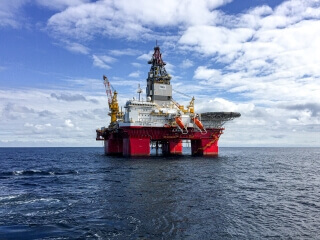
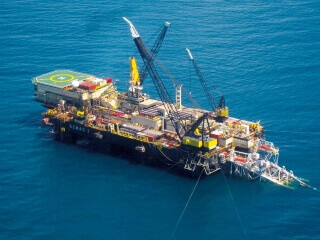
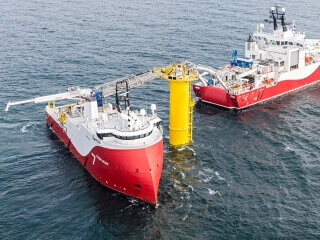
Offshore wind and ocean energy
Offshore wind is the most advanced of the emerging and innovative sectors of the blue economy. Employment in the sector continues to grow and was estimated at around 210 000 jobs in 2018 (up from 183 000 in 2017), just over half of the total employment in the broader wind energy sector. Electricity produced from offshore wind serves more than 10 million households in the EU. Most installed capacity is located in the UK (44 %) and Germany (34 %), but offshore wind is also a growing sector in Denmark, Belgium, and the Netherlands.
Wind energy accounted for 60 % of total new investments in power capacity in Europe in 2018, far exceeding all other energy sources. In the EU, the offshore wind capacity is set to increase at least fourfold by 2030, which would put offshore wind on track to become the EU’s largest source of electricity in the 2040s.
The ocean energy sector (tidal and wave power) is rather small in the EU but holds considerable promise. However, tidal and wave power have the greatest potential capacity of all renewable energy sources. Currently over 430 companies in the EU accounting for an estimated 2 250 jobs are involved in different stages of the ocean energy supply chain.
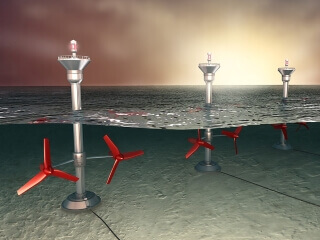
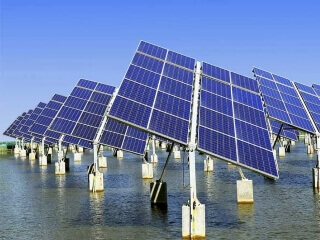
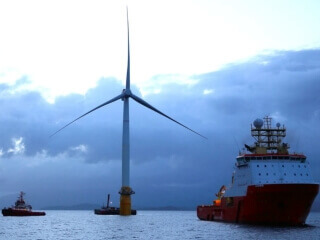
We share what works!
Read | Choose | Use
Visit the Blue Career Path Platform
CLICK to see the cross-sectoral mobility opportunities in the blue economy.
Build confidence | Recognize own abilities | Broaden horizons
Engage with likeminded people!
Our Partners
Find out all the partners which are part of our family!
The project brings together an NGO from Romania (TEAM4Excellence), an SME specialised in providing VET training from Spain (Sea Teach) and a regional school directorate from Turkey (Osmaniye Il Milli Egitm Mudurlugu). This multi-disciplinary and complementary consortium is supported by 15 local associate partners. Everything is set up to help you in your maritime and blue career.
The European Commission support for the production of this publication does not constitute an endorsement of the contents. The contents reflect the views only of the authors, and the Commission cannot be held responsible for any use which may be made of the information contained therein.
Erasmus+ Strategic Partnership: Career Guidance in Blue Economy, ID 2020-1-RO01-KA202-080397


